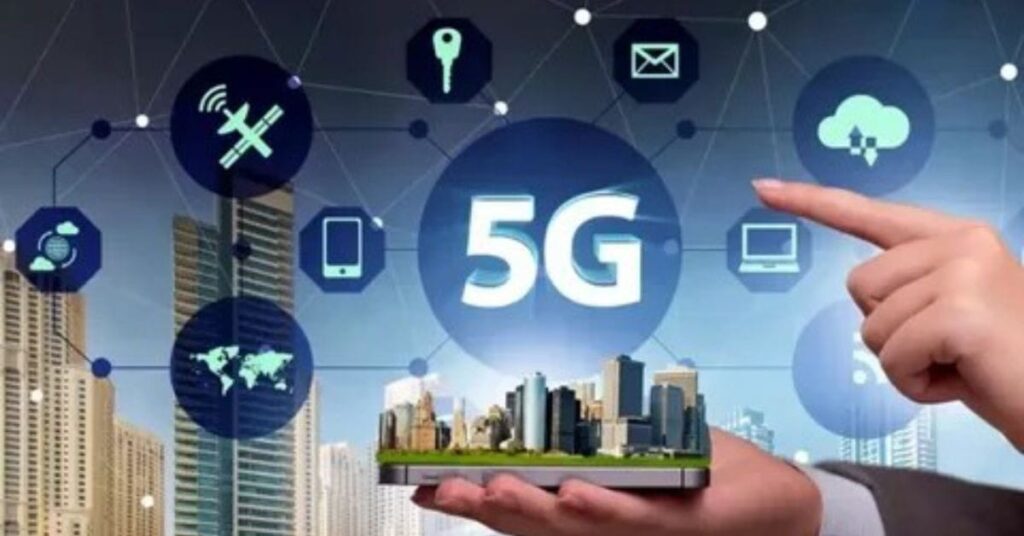5G technology is the fifth generation of wireless networks. It is much faster than 4G and can connect many devices at the same time. It reduces delay, making internet activities smoother and more reliable. With 5G, businesses, smart cities, and daily life can run more efficiently. This technology is shaping the future by improving communication, automation, and digital experiences.
Imagine a world where videos load instantly, online meetings never lag, and smart devices respond in real time. 5G is making this possible. It is not just about speed; it is about creating smarter cities, advanced healthcare, and better business solutions. From self-driving cars to remote surgeries, 5G is unlocking new possibilities.
The impact of 5G on business and daily life is huge. Companies can operate faster, and people can enjoy a more connected lifestyle. This technology is improving industries like healthcare, education, transportation, and entertainment. In the next sections, we will explore how 5G is transforming both businesses and everyday life.
Understanding 5G Technology
5G is the newest and fastest wireless network. It is much better than 4G because it offers higher speed and lower delay. This means websites, videos, and apps load quickly. 5G can also connect more devices at the same time without slowing down. It is used in businesses, smart cities, and homes to improve daily life.
This technology works by using advanced radio waves and powerful network systems. It helps in self-driving cars, smart homes, and virtual reality. Factories use 5G to run machines automatically. Doctors can perform remote check-ups with real-time video. Gamers enjoy smooth, lag-free experiences. 5G is making the world faster, smarter, and more connected.
Read Out this Blog:5G Technology: Revolutionizing Connectivity & Future Innovations
Impacts of 5G on Business and Daily Life
5G technology is changing the way businesses work. It offers faster internet, making remote work and online meetings smoother. Companies can use cloud computing and AI more effectively. Smart factories with automated machines can produce goods faster. E-commerce platforms load quicker, improving customer experience. Digital marketing benefits from real-time data analysis. Overall, businesses become more efficient, productive, and connected.
In daily life, 5G brings many improvements. Internet browsing, video streaming, and gaming become faster with no delays. Smart homes run better with connected devices like security cameras and voice assistants. Healthcare improves with remote check-ups and faster medical data sharing. Smart cities benefit from improved traffic management and public safety systems. With 5G, people enjoy a more connected, convenient, and efficient lifestyle.
Faster Mobile and Internet Connectivity
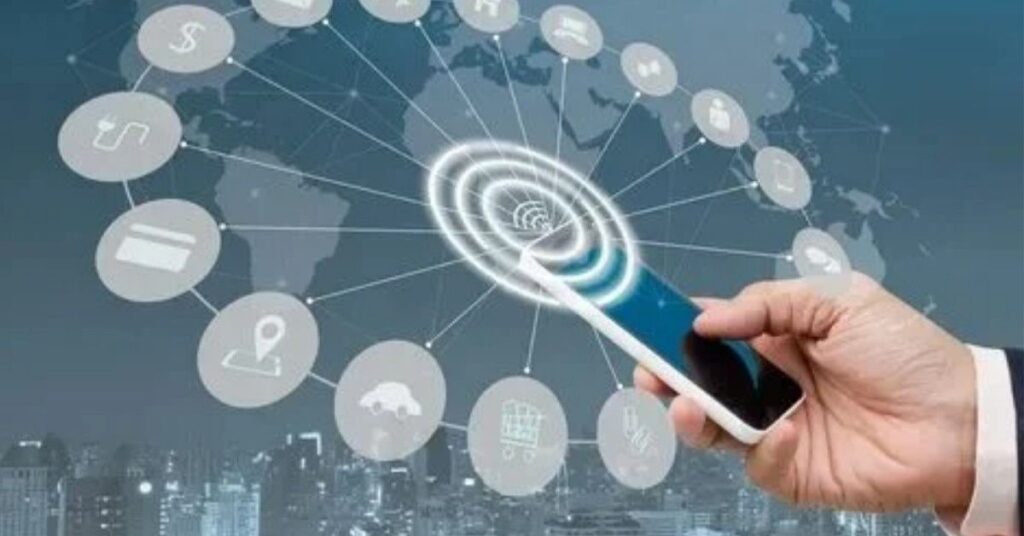
5G technology makes mobile and internet connections much faster. Websites, videos, and apps load instantly. Downloading large files takes only a few seconds. Video calls are clearer, with no delays or freezing. People can enjoy smooth online gaming without lag. With 5G, everything on the internet works quickly and without interruptions.
This fast connection also helps businesses and daily life. Remote work becomes easier with stable video meetings. Smart homes respond faster to voice commands. Online shopping and digital payments happen instantly. Public services, like hospitals and traffic systems, can work more efficiently. 5G is making internet use smoother, smarter, and more reliable for everyone.
Making Remote Work Possible
5G technology makes remote work easier and faster. It provides high-speed internet with no delays. Video calls are smooth, with clear sound and picture. Large files upload and download quickly. Cloud-based tools work better, helping teams to collaborate from anywhere. With 5G, working from home feels just like working from an office.
Better connectivity also improves productivity. Employees can join online meetings without interruptions. Businesses can use smart software for real-time teamwork. Remote workers can access company data safely and quickly. Even in busy cities or rural areas, 5G ensures a strong connection. This technology is making remote work more reliable and efficient than ever before.
Enhanced Communication and Collaboration
5G technology makes communication faster and clearer. Video calls have no lag, and voice calls are crystal clear. Messages and emails are sent instantly. Businesses can hold virtual meetings without connection issues. People can stay connected from anywhere in the world with ease.
Collaboration also improves with 5G. Teams can work on projects in real time using cloud-based tools. Large files and documents can be shared quickly. Remote workers can access company systems without delays. Smart devices and AI assistants help teams stay organized. With 5G, working together becomes easier and more efficient.
Artificial Intelligence

Artificial Intelligence (AI) is the technology that helps machines think and learn like humans. It is used in phones, computers, and smart devices. AI can recognize voices, images, and patterns. It helps businesses make better decisions. Many industries use AI to improve their services, from healthcare to banking. AI makes life easier by automating tasks and solving problems quickly.
AI is growing fast and changing the world. It powers self-driving cars, chatbots, and smart assistants like Siri and Alexa. Factories use AI robots to build products faster. Online stores recommend products based on customer preferences. AI in healthcare helps doctors detect diseases early. With AI, the future will be more efficient and intelligent.
Growth of Smart Industries
Smart industries are growing fast with new technology. Factories now use machines that work on their own. 5G and Artificial Intelligence (AI) help in making products faster and better. Sensors and robots reduce mistakes and save time. Businesses can track their goods in real time. This makes production smooth and more efficient.
Many industries are using smart technology to improve work. Healthcare uses smart machines for faster treatment. Agriculture uses drones and sensors to check crops. Retail stores use AI for better customer service. Transportation has smart traffic systems for smoother travel. Smart industries are making work easier, faster, and more advanced.
| Industry | Smart Technology Used | Benefits |
| Manufacturing | AI robots, IoT sensors | Faster production, fewer errors |
| Healthcare | Smart machines, AI | Better diagnosis, quick treatment |
| Agriculture | Drones, smart sensors | Higher crop yield, less waste |
| Retail | AI chatbots, smart payments | Better customer experience |
| Transportation | Smart traffic systems | Smoother and safer travel |
Smart industries are the future. They help businesses grow and make life easier for people.
E-commerce and Digital Marketing
E-commerce means buying and selling things online. It has grown fast with better internet and smart technology. People can shop from anywhere using their phones or computers. Payments are quick and secure with digital wallets and online banking. Businesses can reach more customers and sell products easily. With 5G, e-commerce websites load faster, giving users a smooth shopping experience.
Digital marketing helps businesses promote their products online. Companies use social media, emails, and ads to attract customers. AI suggests products based on customer interests. Video ads and influencers make marketing more engaging. Data analytics help businesses understand what people like. E-commerce and digital marketing together make shopping easy and more personalized.
Impacts of 5G on Daily Life
Connected Devices
Technology is making it easier for devices to connect. Phones, computers, and smart home gadgets can talk to each other. 5G and Wi-Fi help devices share data quickly. Smart assistants like Alexa and Google Home can control lights, TVs, and security cameras. This makes life more convenient and efficient.
Connected devices are useful in many places. In homes, smart appliances save energy and time. In offices, machines and computers work together smoothly. In cities, traffic lights and security cameras communicate for better safety. Even in healthcare, smart devices monitor patients’ health in real time. Connecting devices is making the world smarter and more connected.
Smart Homes and IoT
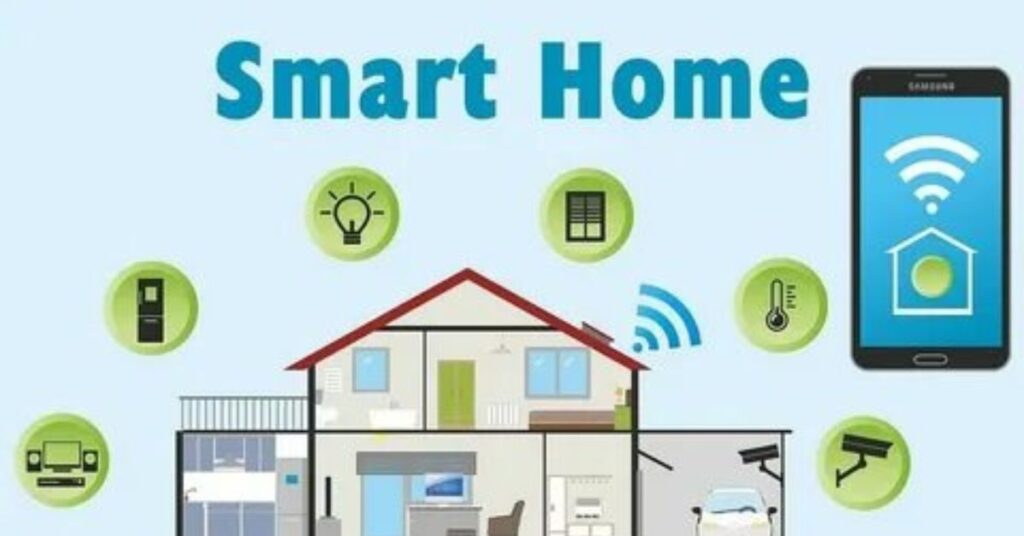
Smart homes use technology to make life easier. Devices like smart lights, security cameras, and voice assistants connect through the internet. People can control them using phones or voice commands. Smart thermostats adjust room temperature automatically. 5G and Wi-Fi make these devices work faster and better.
The Internet of Things (IoT) connects smart devices in homes. It helps save energy by turning off unused appliances. Smart refrigerators can track food and send alerts. Home security systems detect movement and send real-time updates. With IoT, homes become safer, more comfortable, and more efficient.
Healthcare and Telemedicine Advancements
Technology is making healthcare better and faster. Doctors can now check patients remotely using video calls. Smart devices track heart rate, blood pressure, and sugar levels. AI helps doctors detect diseases early. Hospitals use robots for surgeries and patient care. 5G makes telemedicine smoother with clear video and fast data sharing.
Telemedicine helps people get medical care from home. Patients do not need to travel for minor check-ups. Emergency help reaches faster with smart ambulances. Medical records are stored online for quick access. Rural areas get better healthcare with remote consultations. With new technology, healthcare is becoming more advanced and accessible.
Benefits of Telemedicine and Smart Healthcare
- Remote doctor consultations through video calls
- Smart devices track health in real time
- Faster diagnosis with AI technology
- Robots assist in surgeries and hospital care
- Quick access to digital medical records
- Better healthcare for people in rural areas
- 5G enables fast and smooth communication
Enabling Smart Cities and Infrastructure
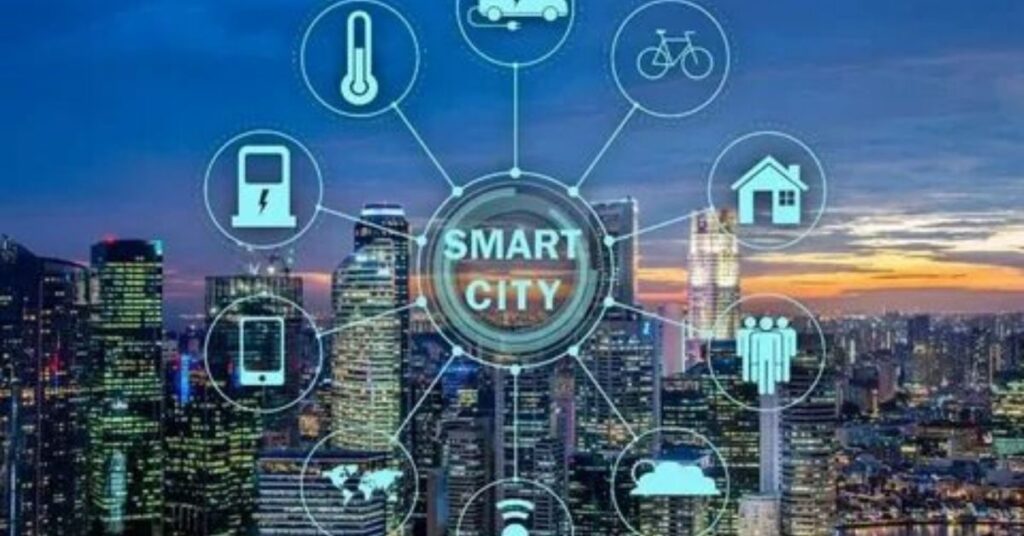
5G technology is helping cities become smarter. It connects traffic lights, security cameras, and public transport systems. Smart sensors track air quality, waste management, and water supply. This helps cities run smoothly and keeps people safe. Faster internet makes communication between systems quick and efficient.
Smart infrastructure improves daily life. Roads have sensors to manage traffic better. Smart buildings use less energy with automated lighting and temperature control. Public transport becomes more reliable with real-time tracking. Emergency services respond faster with connected systems. With 5G and smart technology, cities are becoming safer, greener, and more efficient.
Entertainment and Media Evaluation
Entertainment and media have changed with new technology. People can stream movies, music, and games instantly. 5G makes videos load faster with no buffering. Virtual reality (VR) and augmented reality (AR) create exciting experiences. Social media platforms connect people worldwide in real time. News and information spread quickly through online channels.
Media production has also improved. AI helps create high-quality content faster. Live streaming is smoother and more interactive. Online gaming is better with no delays. Smart TVs and devices offer personalized content. With new technology, entertainment and media are more engaging and accessible than ever before.
The New Generation of Network
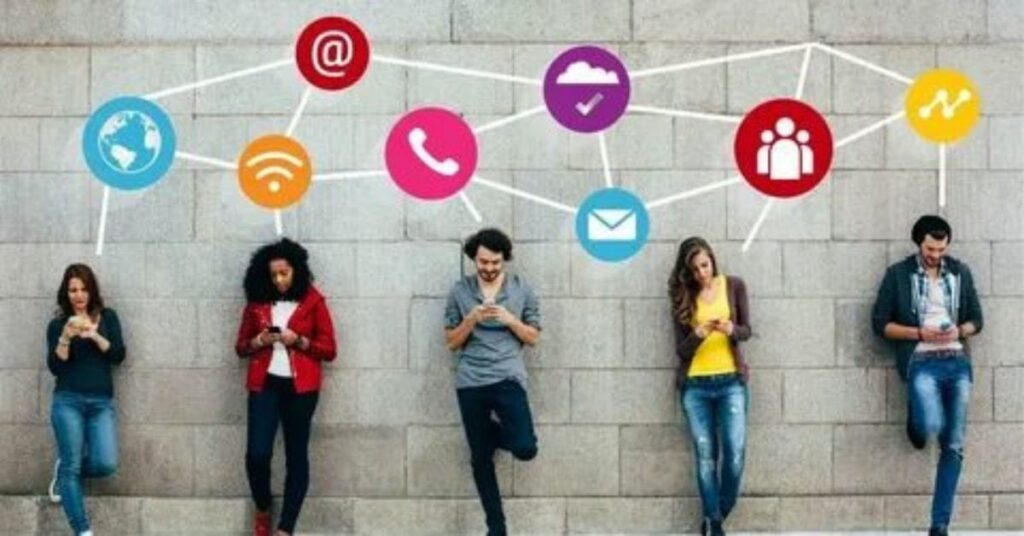
The world is moving to a faster and smarter network. 5G is the latest wireless technology, much faster than 4G. It reduces delays and connects more devices at the same time. This helps businesses, smart cities, and homes work better. With 5G, internet connections are more stable and reliable.
This new network improves daily life. Video calls are clearer, and downloads happen in seconds. Smart homes, self-driving cars, and AI assistants work smoothly. Factories use 5G to automate machines and increase production. Healthcare, education, and entertainment also benefit from this technology. The new generation of networks is shaping the future.
Challenges and Concerns of 5G Adoption
5G technology is fast, but it has some challenges. Setting up 5G networks is expensive and takes time. Many rural areas still do not have proper 5G coverage. Older phones and devices do not support 5G, so people need to buy new ones. More 5G towers are needed, which raises concerns about space and the environment.
Security and privacy are also big concerns. More connected devices mean a higher risk of cyberattacks. Hackers can try to steal personal and business data. Some people worry about the health effects of 5G signals, though no strong proof exists. Governments and companies must work to keep 5G safe and secure. Overcoming these challenges will help everyone enjoy the benefits of 5G.
Key Challenges of 5G Adoption
- High cost of setting up 5G networks
- Limited coverage in rural areas
- Older devices are not compatible with 5G
- Need for more 5G towers and infrastructure
- Increased risk of cyberattacks and data theft
- Concerns about health effects of 5G signals
- Privacy issues with more connected devices
FAQs
How does 5G technology benefit businesses?
5G helps businesses with faster internet, smooth video calls, and real-time data sharing. It improves automation, AI, and cloud services, making work more efficient.
How will 5G improve daily life?
5G makes internet browsing, video streaming, and gaming faster. It also helps smart homes, healthcare, and transportation work better and more smoothly.
Will 5G make remote work easier?
Yes, 5G provides stable connections for video meetings, quick file transfers, and real-time collaboration, making remote work more effective.
How does 5G impact smart cities?
5G supports traffic management, security systems, and public services, making cities safer and more efficient. It also improves energy use and pollution control.
Are there any concerns about 5G technology?
Yes, challenges include high setup costs, security risks, and limited coverage in rural areas. Privacy concerns and the need for new devices are also important issues.
Conclusion
5G technology is changing businesses and daily life. It makes the internet faster and more reliable. Companies can work better with real-time data and automation. People can enjoy smoother video calls, gaming, and smart home devices. 5G also helps in healthcare, education, and transportation, making life easier and more connected.
Even with its benefits, 5G has some challenges. Setting up networks is costly, and security risks need attention. Some areas still do not have proper 5G coverage. However, as technology improves, these issues will be solved. 5G is shaping the future, bringing speed, convenience, and innovation to the world.

